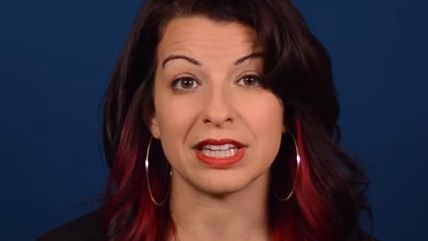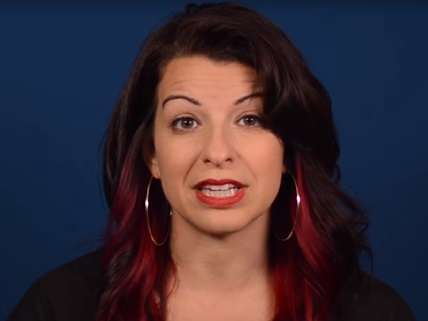New 'Trust and Safety Council' Is Twitter Version of 1984's Ministry of Truth
Twitter says it wants to strike a balance between free speech and harassment. It didn't.


In order for users to feel confident expressing themselves "freely and safely," Twitter is debuting a new advisory group dubbed the "Trust & Safety Council." But a quick glance at its membership roster suggests the council is almost as Orwellian as it sounds—and overwhelmingly biased in favor of speech suppression.
If you thought Milo Yiannopoulos losing his blue checkmark was the opening salvo in the next great culture war (I tended to agree with Popehat's Ken White that the controversy was overblown), then this might be your virtual invasion of Poland.
The council includes more than 40 organizations that will be tasked with helping Twitter, "strike the right balance between fighting abuse and speaking truth to power." But if the goal was really to find some middle ground between total free speech and safeguards against harassment, one might have expect Twitter to solicit some diversity of opinion. In fact, despite the press release's claim that the council includes a "diversity of voices," virtually none of the council members are properly classified as free speech organizations. (Full list here).
Some of the groups—such as Hollaback! and the Dangerous Speech Project—don't think harassment should be criminalized outright. But the vast majority are certainly more concerned about allowing too much speech rather than too little. Notable members include Feminist Frequency—the blog and Youtube channel of anti-Gamer Gate activist Anita Sarkeesian—the Anti-Defamation League, and a host of suicide-and-domestic-violence prevention groups.
I sent Twitter's head of Global Policy Outreach a tweet asking why the council's composition is so one-sided (this seems like the best way to reach her, yes?). I did not immediately hear back.
Twitter is a private company. It is free to make whatever speech rules it wants. Forcing Twitter to permit more kinds of speech would not actually be pro-free speech—in fact, it would violate the First Amendment.
But its users are also free to complain that the platform is cracking down on speech they would like it to permit. For my part, I would feel more comfortable if the Trust & Safety Council included at least a few principled speech or tech freedom groups, like the Foundation for Individual Rights and the Electronic Frontier Foundation.
I hope I don't get banned for saying that.


Show Comments (224)